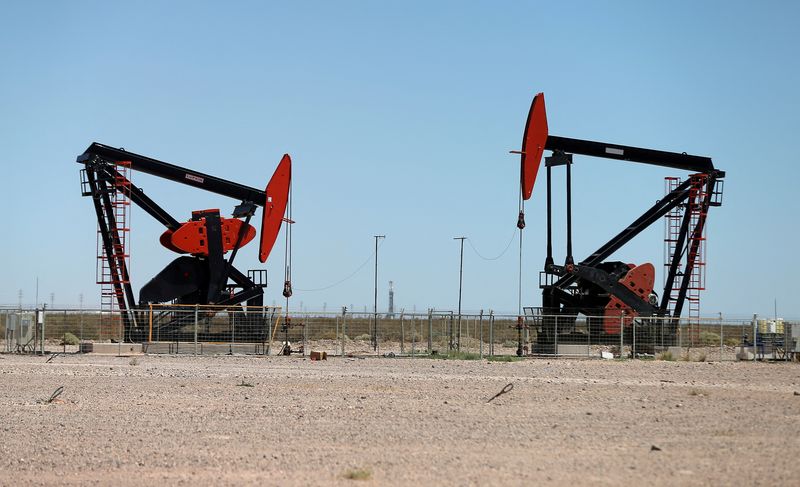By Paul Carsten
LONDON (Reuters) -Oil prices were steady on Thursday, shored up by concerns about lower supply as major producers keep output cuts in place and on signs of stronger economic growth in the U.S., the world’s biggest oil consumer.
futures for June fell 5 cents to $89.30 a barrel at 0919 GMT. U.S. West Texas Intermediate (WTI) futures for May fell 1 cent to $85.42 a barrel.
A meeting of top ministers from the Organization of Petroleum Exporting Countries and its allies (OPEC+) including Russia, kept oil supply policy unchanged on Wednesday and pressed some countries to boost compliance with output cuts.
The group said some members would compensate for oversupply in the first quarter. It also said Russia would switch to output rather than export curbs.
Both the June Brent contract and the May WTI contract have risen for the past four days and closed on Wednesday at their highest levels since October.
Analysts at ING said oil prices continued to edge higher after the OPEC+ meeting recommended no change to output policy.
“Brent is facing some resistance at the $90/bbl level, with it unable to break above it so far,” the ING analysts said.
On Wednesday, Federal Reserve Chair Jerome Powell was cautious about future interest rate cuts after recent data showed higher-than-expected job growth and inflation.
The comments were positive for oil because they indicated solid U.S. economic growth, said Rob Haworth, senior investment strategist for U.S. Bank’s asset management group.
Oil’s recent gains have followed Ukrainian attacks on Russian refineries that cut fuel supply and concerns that the Israel-Hamas war in Gaza may spread to include Iran, possibly disrupting supplies in the key Middle East region.

Iran has vowed revenge against Israel for an attack on Monday that killed high-ranking Iranian military personnel. Iran is the third-largest producer in OPEC.
“While this (OPEC+ decision) was widely expected, it provides some assurance that the recent rise in tension in the Middle East has not altered the group’s view on the market,” ANZ analysts said in a note on Thursday.

